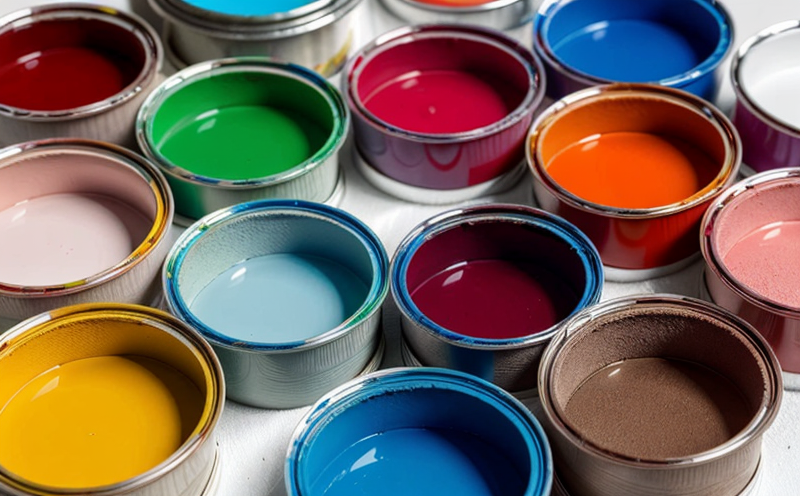EN 71-3 Barium and Selenium in Surface Coatings
The European Standard EN 71-3 is a key regulatory framework for the safety assessment of toys, including their paints, coatings, and surface materials. Specifically targeting toy components that could potentially come into contact with children's mouths, this standard sets strict limits on harmful substances to ensure compliance with EU regulations.
One critical aspect covered by EN 71-3 is the analysis of barium and selenium in surface coatings used on toys. Barium and selenium are naturally occurring elements but can pose risks if present in significant quantities in materials that children might put in their mouths. The test procedure outlined in this section focuses on quantifying these elements to ensure they do not exceed permissible limits.
The testing process for barium and selenium involves several steps, starting with the preparation of samples taken from toys’ surface coatings. These samples are then subjected to various analytical techniques designed to detect even trace amounts of these elements. The chosen methods must be capable of providing accurate results that comply with international standards like ISO 17025.
For quality managers and compliance officers, understanding the specific requirements outlined in EN 71-3 is crucial for ensuring product safety before they reach market shelves. This includes knowing which types of toys require this particular test and how to interpret results from the analysis.
R&D engineers involved in developing new toy designs should also be aware of these regulations as part of their design process. By incorporating tests such as those specified in EN 71-3 early on, they can avoid costly rework later down the line due to non-compliance issues.
Lastly, procurement professionals must ensure that any materials sourced for use in toys comply with relevant safety standards including this one. This ensures not only legal compliance but also protects brand reputation and consumer trust.
Applied Standards
| Standard Code | Description |
|---|---|
| EN 71-3:2019 | Safety of Toys - Part 3: Specific requirements with regard to chemical substances |
| ISO 17025 | General requirements for the competence of testing and calibration laboratories. |
| Testing Methods | Description |
|---|---|
| Inductively Coupled Plasma Mass Spectrometry (ICP-MS) | A highly sensitive method used to detect trace elements like barium and selenium. |
| Atomic Absorption Spectroscopy (AAS) | An alternative technique that can also be employed for measuring these elements at low concentrations. |
Why Choose This Test
The EN 71-3 test is essential for manufacturers and suppliers of toys because it directly impacts the overall safety profile of a product. By ensuring that there are no excessive levels of barium or selenium in surface coatings, you protect children from potential health risks associated with ingesting these elements.
Compliance with this standard can significantly reduce legal liabilities by avoiding fines and penalties for non-compliance. Moreover, it enhances consumer confidence knowing that the products meet stringent safety standards set forth by leading regulatory bodies like the European Union.
The test also plays a role in maintaining brand integrity and reputation. A reputable manufacturer who adheres to all necessary testing procedures will likely gain more customer loyalty and trust over time compared to one that cuts corners on quality assurance measures.
Furthermore, successful completion of this test can open up new markets for your products within countries where this standard is enforced. This includes not only the EU but also other regions that adopt similar safety protocols for toys.
International Acceptance and Recognition
- The European Standard EN 71-3 is widely recognized across Europe as part of its regulatory framework governing toy safety.
- Many countries outside the EU, especially those with similar stringent regulations on toy safety, also accept tests conducted according to this standard.
- ISO 17025 certification ensures that laboratories performing these analyses operate at high professional standards, which is highly regarded globally.
The importance placed by international bodies such as the European Commission and World Health Organization (WHO) on toy safety further underscores why compliance with EN 71-3 should be a priority for any manufacturer operating within or exporting to EU markets.





